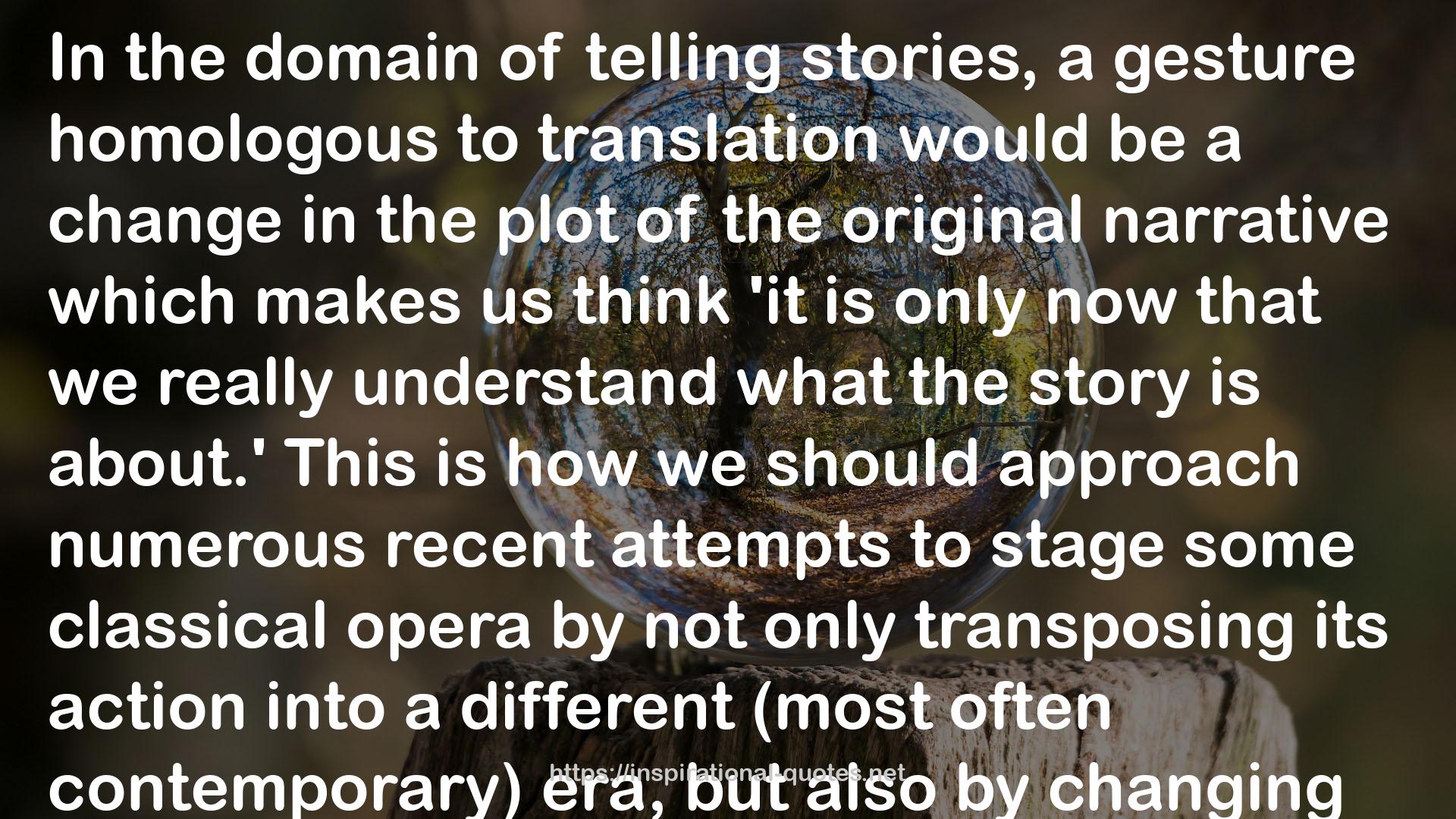" In the domain of telling stories, a gesture homologous to translation would be a change in the plot of the original narrative which makes us think 'it is only now that we really understand what the story is about.' This is how we should approach numerous recent attempts to stage some classical opera by not only transposing its action into a different (most often contemporary) era, but also by changing some basic facts of the narrative itself. There is no a priori abstract criterion which would allow us to judge its success of failure: each such intervention is a risky act and must be judged by its own immanent standards. Such experiments often ridiculously misfire - however, not always, and there is no way to tell in advance, so one has to take the risk. Only one thing is certain: the only way to be faithful to a classic work is to take such as risk - avoiding it, sticking to the the traditional letter, is the safest way to betray the spirit of the classic. In other words, the only way to keep a classical work alive is to treat it as 'open', pointing towards the future, or, to use the metaphor evoked by Walter Benjamin, to act as if the classic work is a film for which the appropriate chemical liquid to develop was invented only later, so that it is only today that we can get the full picture. In both these cases, that of translation and that of (re)telling stories, the result is thus the same: instead of the original and its translation (or re-telling), both versions are conceived as fragmentary variations of an impossible Idea which can only be discerned by way of bringing out all its variations. "
― Slavoj Žižek , Sex and the Failed Absolute
